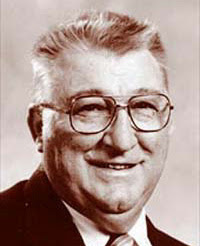Listening to some sermons today on John 11.

A Sympathetic Savior, John Reisinger, Trinity Baptist Church, 59:20
Mr. Reisinger (a reformed baptist), as expected, interprets Martha’s interaction with Jesus as accusatory. Without the prosodic features of language (body language, stress, intonation, basically how Martha was speaking), we really have no way of knowing if Martha was in fact accusatory. That’s certainly one possible explanation, but for Baptists, it seems to be the default interpretation. Sproul is much more gracious in how he sees Martha’s response. He recognizes that she could have been in fact accusatory, but sees the equal possibility that Martha, although justifiably sad, was calmly responding with a confident statement of faith in whom Jesus was and what he is capable of doing.
One observation of Mr. Reisinger’s I thought helpful was the tendency to emphasize God’s sovereignty over his love. That could very well be applicable to this passage, but it is most certainly applicable to every day life. Mary and Martha do seem committed to the belief that Jesus could have saved their brother. They testify to his sovereignty. But it is certainly possible that they questioned his love for their brother (and for them). The text doesn’t demand that conclusion, but it’s entirely possible. What leads me to believe that this was possibly the case is verse three, where Martha and Mary describe their dying brother to Jesus as, “he whom you love”. Jesus obviously knows whom he loves.
The disciples response could have been said to be similar. They certainly could have been questioning Jesus’ intentions when he advised them they would be returning to Judea to Bethany to ‘wake’ Lazarus when such action would inevitably entail their death. In their life experience, they may have believed the maxim: people that love you do not send you to die.
Riesinger states that Martha pointing out the stench of her brother’s dead body (since it had been four days) in verse 39 contradicts her statement in verse 22 which reads:
“But even now I know that whatever you ask from God, God will give you.”
I suppose that’s a legitimate possibility. It may very well be reading far too much into the text though. There were a lot of things going on at the moment. Does Martha’s pointing out the stench (which normally happens when people are rotting in the grave) mean that she doesn’t believe that whatever Jesus asks he’ll be given? Or perhaps that Jesus isn’t asking for her dead brother to be brought to life? I’d think it would be rather difficult to be dogmatic on the intentions of her statement, especially in light of the lack of all of the details as well as access into her mind. Also, it’s very possible that Lazarus did stink, even when brought back to life. Or maybe he came out smelling like roses. The text doesn’t say.
